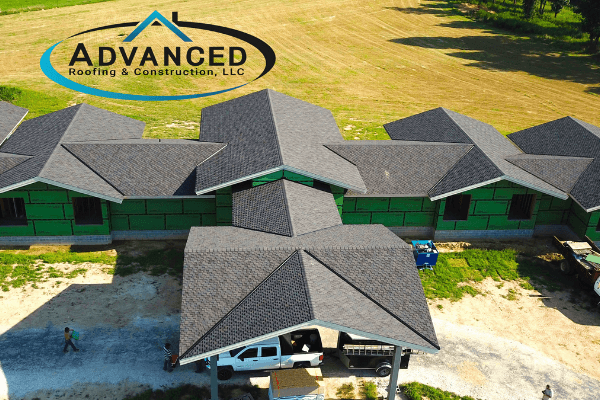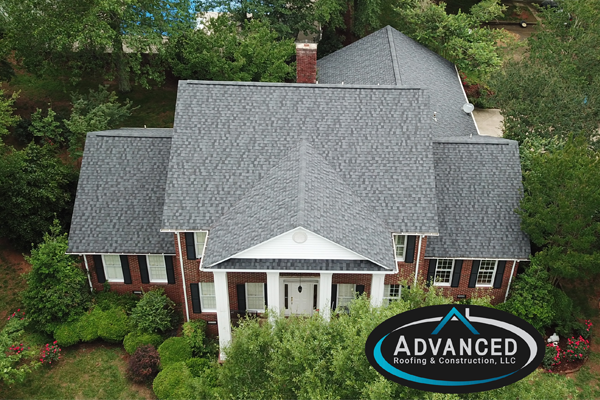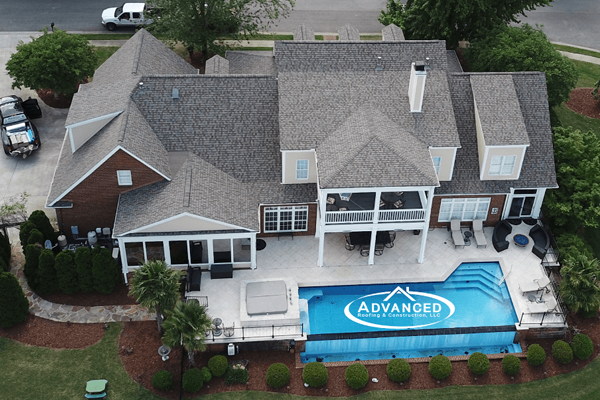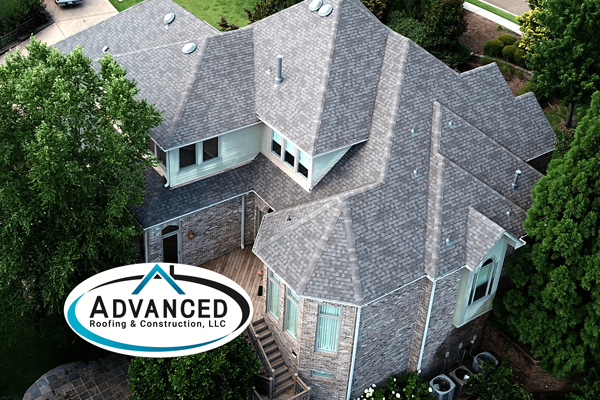Little is more important to the comfort and safety of a house than the roof. The roof seals you and your belongings off from the harsh reality of the world with its unpredictable weather and tree limbs. Within that harsh reality lies one of the greatest enemies to a safe household: water. Water can help support mold and mildew that will weaken the structure of your house, and can destroy precious belongings like expensive electronics. Shingles and gutters are the commonly sung heroes protecting your house from water from above, but no roof is truly safe without roof flashing.
Table of Contents:
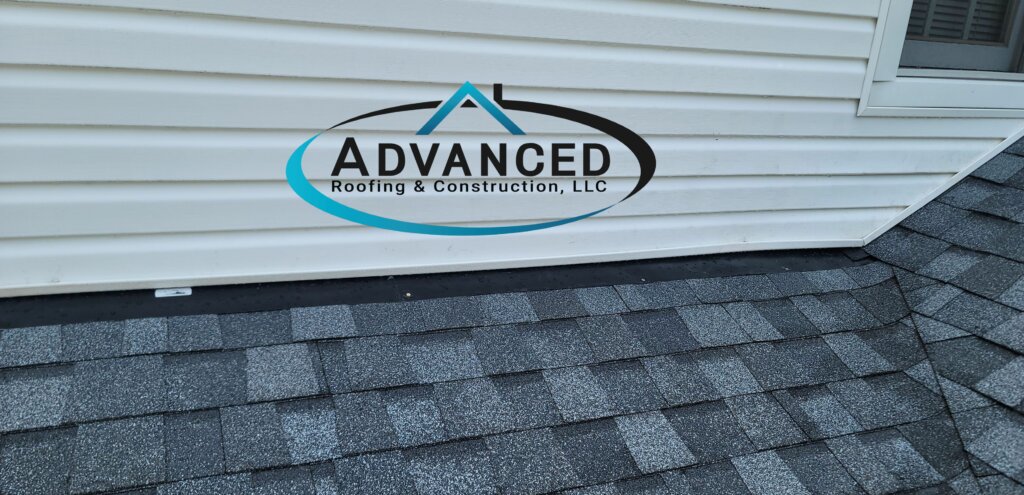
What is Roof Flashing?
Everyone knows what shingles and gutters are and how they can protect your home, but not everyone knows what roof flashing is. With that being said, you likely have flashing on your roof right now! Roof flashings are thin sheets of metal that are used at crevices and junctions of your roof to weatherproof and prevent leaks. Flashings redirect water away from otherwise potentially compromising areas of your roof allowing your house to remain sealed off from the environment. There are many different types of roof flashing one can encounter depending on the features of your roof; let’s explore what some of these different flashing types are and in what situations they should be utilized in.
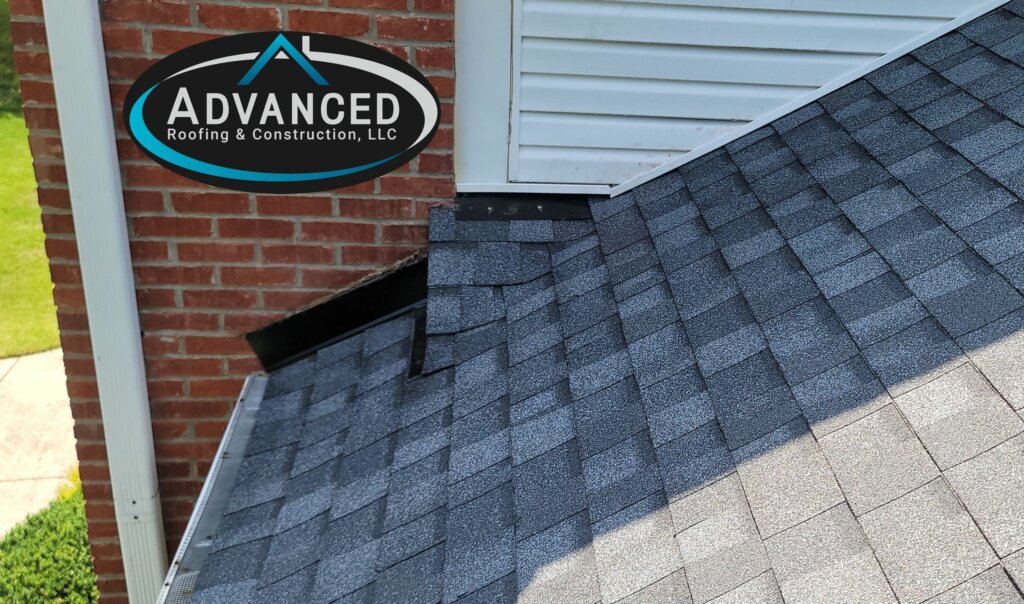
Types of Flashing
Depending on where the sealing needs to be done will change the type of roof flashing. Here are some of the more common types:
Step Flashing:
Step flashing refers to roof flashing that is commonly installed alongside walls or chimneys. The thin metal sheet called the flashing would be installed under the shingles that line the wall or chimney to prevent any water from penetrating along the wall. Step flashing comes at a 90 degree angle to the wall as the flashing is under the shingle but also flush against the wall feature. Step flashing earned its name because when installed correctly, the flashing resembles steps working up the wall of the intersecting structure.
Continuous Flashing:
Continuous flashing refers to a single, long piece of flashing installed onto a roof. Also called apron flashing, this flashing type resembles an apron that lines some vertical walls. The single, long nature of continuous flashing, though, may struggle to bend and shift with the house as it expands and contracts during weather changes throughout the year.
Valley Flashing:
Another aptly named type of roof flashing, valley flashing sits in valleys where two different roof segments connect at an angle. For example, if you have two perpendicular sections of your house, where they combine creates a seam that requires valley flashing to seal and protect. Valley flashings are generally large and noticeable, which can be seen as not so aesthetically pleasing for the roof. However, some homeowners would argue that painted flashings or copper flashings in valleys may go so far as to enhance the look of their roof.
Gutter Apron Flashing:
Gutters are extremely important for directing water away from your house and gutter apron flashings are extremely important for sealing the space between shingle and gutter so that the gutters can operate to their full potential. Water is already being directed towards the gutter, so any gap in these areas will be penetrated making this flashing extremely important to have.
When Should I Repair my Roof Flashing?
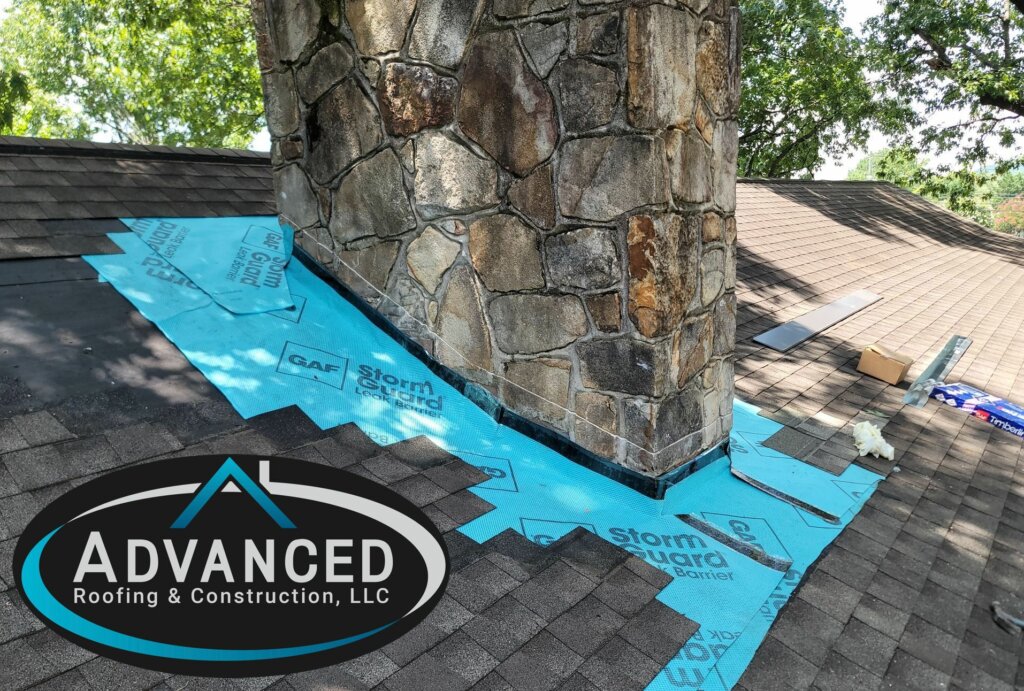
Roof flashing is not cheap to fix. In some instances, part of the roof needs to be replaced alongside the flashing due to how roof flashing is installed underneath shingles. However, an important detail is that flashing will usually have a longer lifespan than the roof itself meaning that the next time you replace your roof, you may not have to touch the flashing. This can put you in a bad spot, though, in that if you get a new roof and keep the flashing, you may have to have work done on your roof soon after to address any flashing issues.
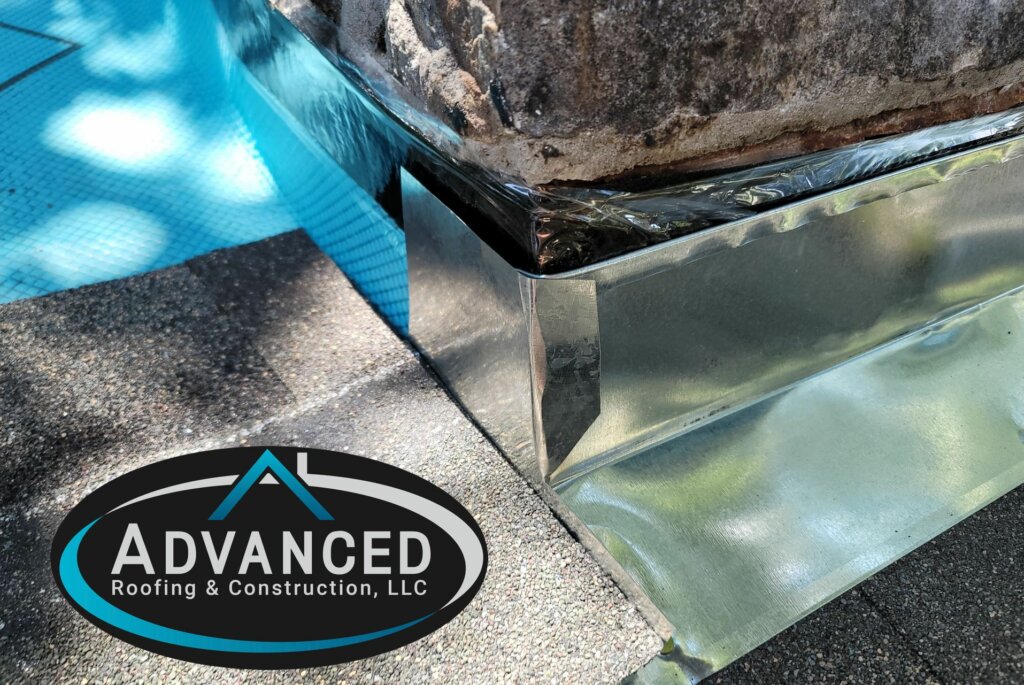
Therefore, if you spot a leak in the flashing or you see the metal rusting, you should get the flashing fixed as soon as possible to prevent any extreme damage from occurring to your house. We recommend having the integrity of your roof flashing checked every year in an annual roof inspection. If small issues arise, small fixes can be made to keep your flashing in working order. Certain sealants can be utilized to patch small issues that could otherwise compromise your entire house to the horrors of water. If you are already replacing your roof and disassembling shingles, the process of replacing the compromised flashing becomes a lot easier and less of a hassle.
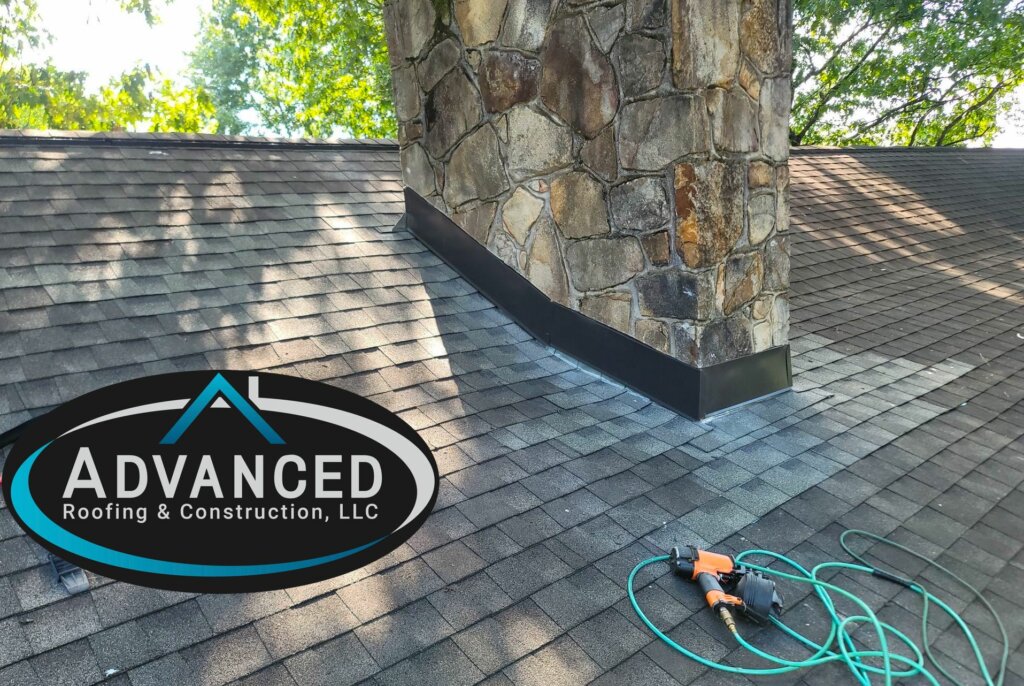
Serving the Following Towns & the Surrounding Areas
Contact the Roof Repair Experts at Advanced Roofing & Construction, LLC For the best roof replacement and roof repair services in and around Huntsville, AL, contact Advanced Roofing and Construction, LLC! Integrity means everything to us and we want your roof and your flashing to last as long as possible. Trust us for effective, long-lasting and affordable roofing services that will make you glad you called Advanced! Our office can be reached at 256-603-9171. Reach out to us to schedule your appointment today.





